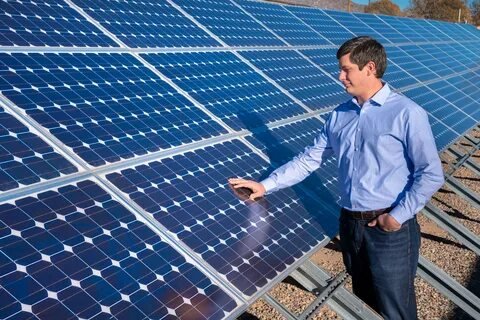Transforming Homes
In a world where environmental awareness and technology are advancing side by side, homeowners are rethinking how they power their daily lives. The growing interest in solar panels for homes reflects a shift toward energy independence, sustainability, and smarter living. What was once a niche technology reserved for eco-enthusiasts has now become a mainstream solution embraced across cities and countryside alike.
The Evolution of Solar Energy at Home
Over the past decade, solar energy has moved from concept to commonplace. Panels have become more efficient, reliable, and visually discreet, making them a natural fit for modern architecture. Unlike earlier models, which required large roof spaces and intense sunlight, contemporary systems are designed to perform efficiently even under varying light conditions.
This accessibility has helped thousands of households transition to renewable energy, reducing their environmental impact while supporting the shift toward cleaner national energy networks. In many cases, homeowners find that once installed, the technology seamlessly integrates into their routines—silently converting daylight into usable electricity without disrupting daily life.
The Smart Export Guarantee and Its Role
A key motivator for the adoption of solar energy in the UK is the Smart Export Guarantee (SEG). This initiative enables homeowners who produce more electricity than they consume to feed that surplus back into the grid. In return, they receive payments from participating energy suppliers.
The program rewards efficiency and innovation, encouraging households to maximize their solar production. It turns passive consumers into active contributors within the national energy system—an inspiring example of how individual actions can collectively create large-scale change.
Why Homeowners Are Turning to Renewable Energy
Solar energy offers a combination of environmental, practical, and lifestyle benefits that appeal to a wide audience. For many, the motivation goes beyond saving on bills. It’s about taking control of one’s energy use and making a tangible contribution to a sustainable future.
Solar panels produce zero emissions during operation and require minimal maintenance. Their longevity—often spanning decades—means they can deliver consistent performance over time without major upkeep. This durability makes them a sound investment for those seeking both stability and environmental responsibility.
Designing a Solar-Ready Home
Installing solar panels isn’t a one-size-fits-all decision. Each home is unique, and designing an efficient system requires an understanding of several factors. Roof orientation, angle, shading, and available space all influence how much energy a panel system can generate.
Before installation, professional assessments evaluate these aspects to determine the best placement and configuration. Advances in panel design now make it easier to work with different roof types, including flat and complex structures. Some homeowners even combine their panels with battery storage, enabling them to store excess energy for use during the night or on overcast days.
Sustainability Meets Modern Living
The appeal of solar energy extends beyond environmental awareness—it fits perfectly into the rhythm of contemporary life. Smart meters, automated systems, and energy monitoring tools allow users to track production and consumption in real time. This integration gives households insight into how their habits affect both their utility usage and their environmental footprint.
For those with electric vehicles, the benefits are even greater. A home that generates renewable energy can, in essence, power both house and car, reducing reliance on fossil fuels and supporting a cleaner transportation network.
Overcoming Common Misconceptions
Despite its growing popularity, solar energy still faces misconceptions. Some believe that the UK’s cloudy climate limits the effectiveness of panels. In reality, modern photovoltaic systems work by capturing daylight, not just direct sunlight. This means they continue to generate power even under overcast skies, making them a viable option across most regions.
Another misconception is that solar power is complex to maintain. However, panels have no moving parts, and apart from periodic cleaning and occasional inspections, they require very little attention. This simplicity contributes to their appeal as a long-term, low-maintenance energy solution.
The Broader Impact of Home Solar Adoption
When viewed collectively, the impact of residential solar adoption is significant. Each home that generates its own renewable power contributes to a cleaner grid, reducing demand on large-scale fossil fuel plants. Over time, this decentralized approach to energy generation helps create a more resilient and efficient national infrastructure.
Moreover, the growth of solar energy supports local economies by driving demand for skilled installation and maintenance professionals. It also encourages further innovation, as research continues to improve solar cell performance and affordability.
A Vision for the Future
The increasing presence of solar panels on UK rooftops across the country is more than a visual change—it’s a symbol of progress. Homeowners are no longer passive participants in the energy system but active players shaping its direction. As technology advances and public awareness deepens, solar power will continue to play a central role in the transition toward a sustainable energy future.
Choosing renewable energy is ultimately a decision about legacy—what kind of world today’s choices will create for future generations. By embracing clean power, households contribute not only to their own independence but also to the broader global mission of environmental stewardship.



